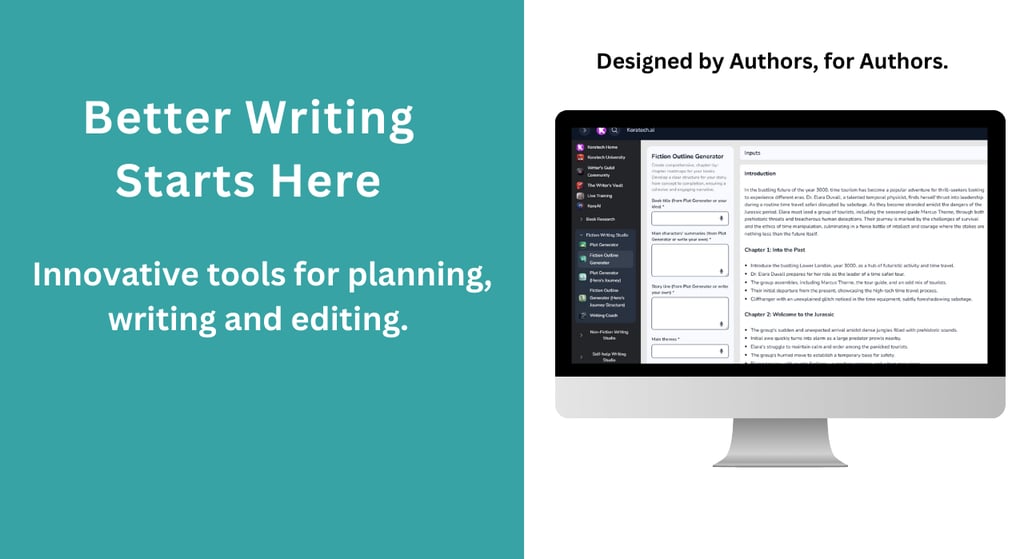Beta Readers: The Secret Weapon for Writers (And How to Use Them Right)
Beta readers are crucial for improving your manuscript before publication. This blog explains how to find and work with them, how they help catch issues with your plot, characters, pacing, and dialogue, and how they make your book stronger before editing.
BOOK PROMOTION & MARKETING


Beta Readers: The Secret Weapon for Writers (And How to Use Them Right)
Writing a book is a deeply personal process, but before you launch it into the world, how do you know if it actually works? Does your plot make sense? Do your characters feel real? Did that shocking twist actually land?
Enter beta readers—the unsung heroes of the writing world. They’re your first line of defense, offering fresh eyes and honest feedback before you send your book to an editor or self-publish. Whether you’re a first-time author or a seasoned writer, beta readers can be the difference between a good book and a great one.
But what exactly do beta readers do? And how do you find the right ones? Let’s break it down.
What Are Beta Readers?
Beta readers are test readers who provide feedback on your manuscript before it’s finalized. Think of them as the literary equivalent of a test audience for a movie—they help you spot the weak points before you go public.
Unlike professional editors, beta readers aren’t looking for grammar mistakes (though they might catch a few). Instead, they focus on the big picture:
✅ Plot – Does the story flow? Are there plot holes?
✅ Characters – Are they engaging, believable, and consistent?
✅ Pacing – Does the story drag, or does it move too fast?
✅ Dialogue – Does it sound natural, or is it clunky?
✅ Emotional Impact – Does your book evoke the reactions you intended?
They’re not just looking for problems—they can also tell you what’s working well, so you know what to keep!
Why Beta Readers Are Critical to Your Writing Process
1. They Catch What You Missed
When you’ve spent months (or years) working on a story, you become too close to it. You know your characters’ backstories and motivations… but did you actually put them on the page? Beta readers highlight blind spots that you may not notice because you’re too immersed in your own world.
Example:
👉 You think your mystery novel has a shocking twist… but your beta readers saw it coming from Chapter 2.
2. They Represent Your Future Audience
Your book isn’t just for you—it’s for readers. Beta readers bridge the gap between your vision and the reader’s experience, ensuring your story resonates with the right audience.
Example:
👉 You’re writing a young adult novel, but your beta readers point out that your teenage characters sound like middle-aged adults.
3. They Provide Honest, Low-Stakes Feedback
Unlike reviews on Amazon or Goodreads, beta readers give you a safe space to improve. They’re there to help, not to criticize.
A negative review after publishing can hurt your reputation, but constructive criticism before publishing can help you fix the problem—without the public embarrassment.
Example:
👉 A beta reader tells you your protagonist is too unlikable, giving you the chance to soften their personality before readers reject them.
4. They Can Help with Specific Problem Areas
If you’re struggling with a particular aspect of your book, beta readers can give targeted feedback.
Examples:
Your fight scenes feel stiff? Ask a beta reader who loves action-packed books.
Your romantic subplot isn’t working? Find a romance fan to pinpoint why.
Writing outside your own experience? A beta reader with lived experience can offer invaluable insight.
5. They Make Your Book Stronger Before Editing
Editors are expensive, and beta readers can save you money by catching major issues first. The stronger your manuscript is before professional editing, the less time (and money) you’ll spend on revisions.
Example:
👉 If beta readers tell you your story falls apart in Act 3, you can fix it before paying for an editor—who would charge more for a major rewrite.
Where to Find Beta Readers
Finding the right beta readers is key—you want people who will be honest, engaged, and familiar with your genre. Here’s where to start:
📌 Writing Communities & Online Groups
Facebook Groups (e.g., Beta Readers & Critique Partners)
Reddit (r/BetaReaders, r/writing, r/YAwriters, etc.)
Discord servers for writers
📌 Writing Platforms
Scribophile – Critique and get critiques in return.
Critique Circle – A structured beta reading community.
Goodreads Beta Reader Groups
📌 Social Media & Personal Networks
Twitter/X, Instagram, TikTok (#BetaReaders, #WritingCommunity)
Ask fellow writers or critique partners
Local writing groups or workshops
👉 Pro Tip: Avoid friends & family unless they’re experienced readers who will be honest.
How to Work with Beta Readers (Without Losing Your Mind)
Getting beta readers is one thing—managing their feedback is another. Here’s how to do it effectively:
1. Give Clear Instructions
Be upfront about what kind of feedback you need. Provide a list of questions, such as:
Did the opening chapter hook you?
Did any scenes drag or feel unnecessary?
Was there any dialogue that felt unnatural?
Did any twists surprise you, or were they predictable?
2. Set a Deadline
Beta readers are doing you a favor, but your book can’t wait forever. Set a reasonable deadline (2-4 weeks) and check in politely if they go silent.
3. Don’t Take Feedback Personally
Not every beta reader will love your book—and that’s okay! If multiple readers mention the same issue, it’s worth fixing. If feedback conflicts, use your judgment.
❌ Wrong reaction: “You don’t understand my book! You’re wrong!”
✅ Right reaction: “Hmm, three people said the pacing was slow… maybe I should tighten it up.”
4. Organize Feedback (So You Don’t Get Overwhelmed)
If you’re working with multiple beta readers, compile their feedback into categories:
Plot Issues
Character Development
Pacing
Dialogue
This makes it easier to spot patterns and decide what changes to make.
When to Move On From Beta Readers
Your book will never be perfect, so how do you know when to stop tweaking?
✅ If multiple beta readers agree your story works, it’s ready for an editor.
✅ If feedback is nitpicky rather than structural, you’re over-editing.
✅ If you’re getting conflicting opinions, trust your instincts.
At some point, you have to stop editing and move forward—don’t get stuck in beta reader limbo!
Final Thoughts: Beta Readers Can Make or Break Your Book
Beta readers are an invaluable tool for any writer looking to improve their manuscript before it reaches the public. They help refine your story, point out blind spots, and ultimately make your book stronger.
So if you’ve been hesitant about sharing your work—don’t be! The right beta readers will help you shape your best story yet.


